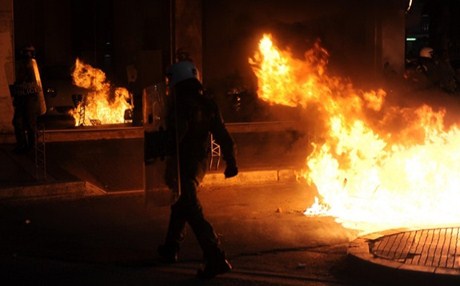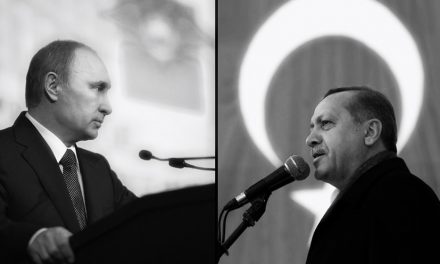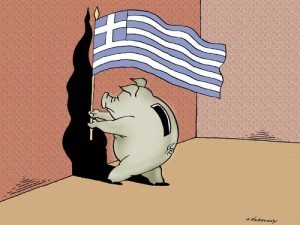Mitsotakis visited Papademos in hospital and said the 69-year-old former central bank chief was “lucky to be alive.” Tsipras himself tweeted after the attack: “I condemn unequivocally the attack against Lucas Papademos. I wish a speedy recovery to him and the people who accompanied him.”
The self-styled “urban guerrilla” group Conspiracy of the Cells of Fire (SPF), which had been believed to be defunct since a wave of arrests in 2011, has claimed responsibility for some of the bombs. Security experts say its leaders continue to recruit new members and direct attacks from behind bars.
“We are the only country [in Europe] that has domestic terrorism of the extreme left,” said Mitsotakis, blaming Syriza for fomenting a “real culture of hate” when it was in opposition, and of doing little about the violence since it has been in power. “I haven’t seen anything that convinces me that they have a real willingness or desire to address this issue,” he said.
The ruling party, in turn, accuses New Democracy of “vulgar political exploitation” of the situation, saying this too is “a danger to democracy.”
Greece has “some of the toughest law provisions for terrorist activity” and is “making progress in confronting members of terrorist groups,” argued Syriza MP Nikos Paraskevopoulos.
Others disagree — and even warn that radicalized Greek youth could soon resort to even more lethal forms of violent protest.
‘Lost control’
While Greece’s “urban guerrillas” claim they want to instigate a revolution, experts say its members are typically well-educated youngsters from middle-class families motivated by a desire to verbalize their hostility to the system. Claims of responsibility for attacks are often accompanied by lengthy theoretical arguments and diatribes against politicians.
“They are not poor kids,” said Mary Bosi, a professor at the University of Piraeus and an expert on Greek left-wing terrorist groups. “They want to show their dissatisfaction with the state and its institutions.”
In a country where youth unemployment hovers around 45 percent, frustration at the lack of opportunity runs high. “We see that all the time in Greece, of course — they are angry, they are jobless. They study and they have no future, this is part of a big problem,” said Bosi.
The SPF typically uses small quantities of explosives — just enough to wound but also escape detection by postal sorting-office screening machines — and targets prominent economic and political figures seen as being somehow responsible for Greece’s financial troubles.



















